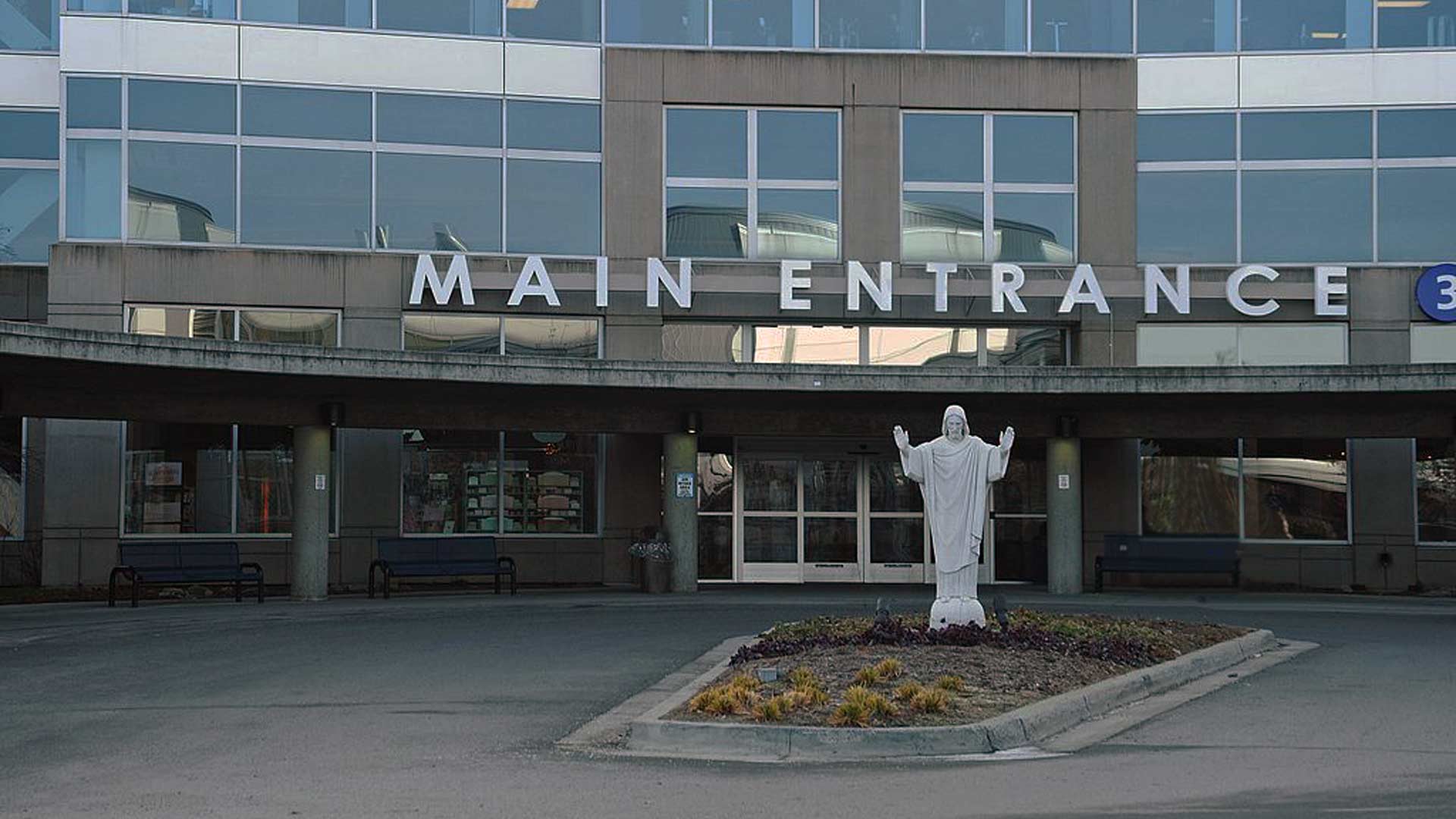
A year after cancelling its biennial survey in which the State of Alaska gathers detailed information about the sexual practices, drug use, home life and general health of high school teens, the Alaska Youth Risk Behavior Survey (YRBS) is back.
This year the CDC has released a recommended draft (read here) which asks detailed questions about whether teens have had oral or anal sex, which sexes they are attracted to, and what gender they most identify with. Other questions deal with condoms, oral contraceptives and more.
Last year, the state attempted to conduct the survey on 9th through 12th graders by introducing a controversial new question asking teens about their sexual orientation and gender identity. It was the first time such a question was to be included.
It asked: “Which of the following best describes you?”
— A.) Heterosexual (straight).
— B.) Gay or lesbian.
— C. Bisexual.
— D.) I describe my sexual identity some other way.
— E.) I am not sure about my sexual identity (questioning)
— F.) I do not know what this question is asking.
But before the survey was rolled out, the state promptly cancelled it on August 10th citing difficulties that school districts were facing due to the ongoing COVID-19 Pandemic. A recent July 29 letter from the Alaska Department of Health and Social Services addressed to YRBS partners also acknowledges that some school districts raised concerns about the state’s decision to include the question about sexual orientation and gender identity in the 2021 survey, and that this, too, contributed to the state’s decision to skip the survey that year.
Powerful left-leaning activist organizations use YRBS data to push for LGBTQ affirming school environments, gender fluid bathrooms, transgender sports, explicit sex education and more.
The CDC is attempting to pressure the Alaska Department of Health to reinsert similar and expanded questions for the upcoming 2023 survey, plus many other detailed queries regarding sexual practices, experiences and orientation questions.
According to the July 29 letter from DHSS, the 2023 survey will not include questions about sexual orientation or gender identity.
“Having missed the opportunity to collect data on the health of Alaska high school students in 2021, it is more important than ever to have a successful YRBS in 2023, which means full participation from districts statewide,” the letter states. “We understand the value of including questions on sexual orientation and gender identity, but believe it would be in the survey’s best interests to omit these questions in 2023. This decision is just about this year’s survey and does not reflect a formal permanent change for future years.”
While sexual orientation questions will not be part of the upcoming survey, other sensitive questions related to teens’ sexual practices may be included.
A recent email from the state’s Adolescent Health Project Coordinator Jenny Baker, was sent to various educators and nonprofits, urging them to petition the Alaska YRBS team to include both “essential sexual health and experienced racism questions.” Baker signed her email with the pronouns “she/they.”
The YRBS team is meeting on September 16 to discuss proposed questions for the 2023 survey, which is slated to take place in schools during February and March.
Nationally, powerful left-leaning activist organizations, such as the Human Rights Campaign, regularly use YRBS data to push for LGBTQ affirming school environments, including gender fluid bathrooms, transgender sports policies and curriculum that supports the wider LGBTQ agenda. Likewise, Planned Parenthood utilizes YRBS data to claim that schools should implement explicit LGBTQ sex education, birth control and abortion services for youth.
In addition to sexuality questions, the survey also focuses on drug and alcohol use, gun safety, mental and physical health, violence, bullying, suicide, connection to community, and student’s views about their parents.
ALASKA WATCHMAN DIRECT TO YOUR INBOX
Data from the survey is used by the state and other agencies to develop health education, sex-ed courses, behavioral health programs and other programs.
The survey does not ask for a student’s name, and their information is kept anonymous. Participation in the data collection is voluntary and requires a parent to actively give their permission, in writing, per state law. Students older than 18, however, do not need parental permission to take the survey, which is given in February and March.
According to the state’s YRBS website, 2-3% of students typically refuse to participate in the survey, and in 2015, 19% of parents did not give permission for their child to take it.
The survey is part of a national effort run by the U.S. Centers for Disease Control and Prevention (CDC). The Alaska Departments of Health and Social Services and Education and Early Development facilitate the survey.
TAKING ACTION
To voice your opinion that the State of Alaska regarding the adoption of CDC recommendations, please contact the Alaska Department of Health and Social Services and share your thoughts. Also, consider attending the YRBS meeting on September 16th and discuss the questions being posed to students. That meeting will be held via zoom from 10:00am to 1:00pm (AKST).
Register in advance for the Question Development Meeting Here
— Click here to contact Alaska Department of Health & Social Services
**Corrections: The original version of this article contained two inaccuracies. There was confusion between the CDC’s recommended draft survey and the State of Alaska’s draft, which has not been completed. The State of Alaska provided clear and compelling evidence of an email sent to schools statewide citing COVID-19 difficulties as the primary cause for cancelling the YRBS survey, and not solely due to low participation due to objections about the sexual identity question. We apologize for the inaccuracies.








18 Comments
I don’t know about all of u. But we need to take all our children out of public schools and find some
other way of education. We have pedophiles at the fair. You have pedophiles reading stories to your children to groom them. When do we say enough is enough. Someone has to say something. The question is who’s gonna do to it first. We arr GODS CHURCH! When are we as GODS People going to fight for HIS! CHILDREN !!! Someone has to do something , someone has to do the WILL OF GOD! Who’s going to do it???
Agree
Wow! Really! It’s non of the schools or anyone else’s business who is having sex or how or any of this stuff in this article. First off this WOKE B.S. has gotten out of hand. Why/who do you think you are? It’s not any of your business and you forcing your agenda on these kids is offensive to me and I don’t have kids in school. I’m appalled by reading this yet alone if I had kids in this school system I would not be giving permission for them to answer this crap. No wander so many parents are pulling their kids out of school and home schooling them. You folks need to get a life and a grip on reality!
Again I agree
They come to steal, kill and destroy
Vote NO on any and all school bonds. Cut off the money spigot from taxpayers. “Defund” this nonsense.
DEMONIC school board and assembly push this brain washing on your children get them out of public schools.
Grateful for what Alaska Watchman does. I was going to write Alaska Commissioner of Health Adam Crum and found that he’s one of our Maryland “graduates” from Hopkins SPH. And you can count on those types to promote COVID, abortion, LGBTQxyz…the whole woke agenda. Wish I was wrong. You are feeling the brunt of this as they are getting more militant in Alaska. The answer is to run such people out of government. You simply cannot expect these types who collect a 6-figure salary for promoting filth (and a guarantee of being accepted in any other liberal city across America) to willingly leave. As your other commenters have noted, the battle is NOW. Once these things are set in place they WILL NOT be undone easily. For some activists, that may give empowerment – fighting the impossible battle, fighting the good fight. But if you want to push away these pedophile indoctrinators, you must act now like there is no tomorrow. You have RINO Larry Hogan promoting your RINO senator, as well as a host of other uniparty, NWO “bipartisans”. He and other RINO’s are worse than democrats. The state has threatened to start kidnapping children under the pretense of transgenderism unless you stop them now. May God keep you all strong.
Seriously parents, remove your kids from school!
The night is far spent, the day is at hand: let us therefore cast off the works of darkness, and let us put on the armor of light. Let us walk honestly, as in the day; not in rioting and drunkenness, not in clambering and wantonness, not in strife and envying. But put on the Lord Jesus Christ, and make no provision for the flesh, to fulfill the lust thereof. Romans 13 11–14.
Mike Dunleavy, these questions are for you.
These ought to be the questions that are debated by you and your opponent in future public forum debates!
Ridiculous you say?!?
What’s appalling is that you our governor stand by and watch what these kids of “ours” get saturated with unrestrained perversion!
This is not an educational responsibility! These people/groups need to be banned outright Thank you Watchman!
Since when do schools have the authority to implement mental health programs and talk to children about their sexuality. Schools are where children are supposed to be learning academics. This school district has gone to the dogs.
I agree with Neil. Leave our kids alone! Stop trying to put dirty thoughts and ideas into our kid’s heads. You leftists are truly sick people!
This is Grooming.
If anyone outside of the public school was asking your children these questions – you’d call the police. These people are demented perverts..call the cops and file a complaint, and hire a lawyer if you afford it.
They literally aren’t even teaching the kids the 3 R’s. Our test scores are amongst the lowest in the nation – right there with Mississippi, Arkansas, and Alabama.
It’s all part of the Marxist plan to destroy the foundation of our society – the Family.
It’s also part of the plan to have people deny the truth and to be afraid to speak out against this demented, perverted, pedophilic agenda.
Or we can all make nice and stay agreeable as they destroy what made America great.
The comments here are ignorant and disgusting. You people are afraid of the truth. The diatribes against “woke” are nothing but a hateful reaction to the need for inclusive diversity, our greatest strength as a nation.
Reading, writing, and arithmetic. Thats why we have schools. Not reading, writing, arithmetic, and anal sex. This seems pretty simple.
Count Pointercount, you wear the banner of FOOL quite well.
The YRBS is voluntary, but parent aren’t told what specific questions are on it. The letter sent home is very general, and prizes are often awarded to students: return your signed permission slip and have your name entered into a drawing for something cool. There is peer pressure to take the survey, and class time is sacrificed for it. The results of the survey also provide opportunities for teachers to discuss the behaviors in class whether it’s part of the curriculum or not. The State of Alaska should scrap this and return these types of intimate discussions to the family. If a school won’t even produce good reading, writing. and math skills, why should we ever trust them with this?